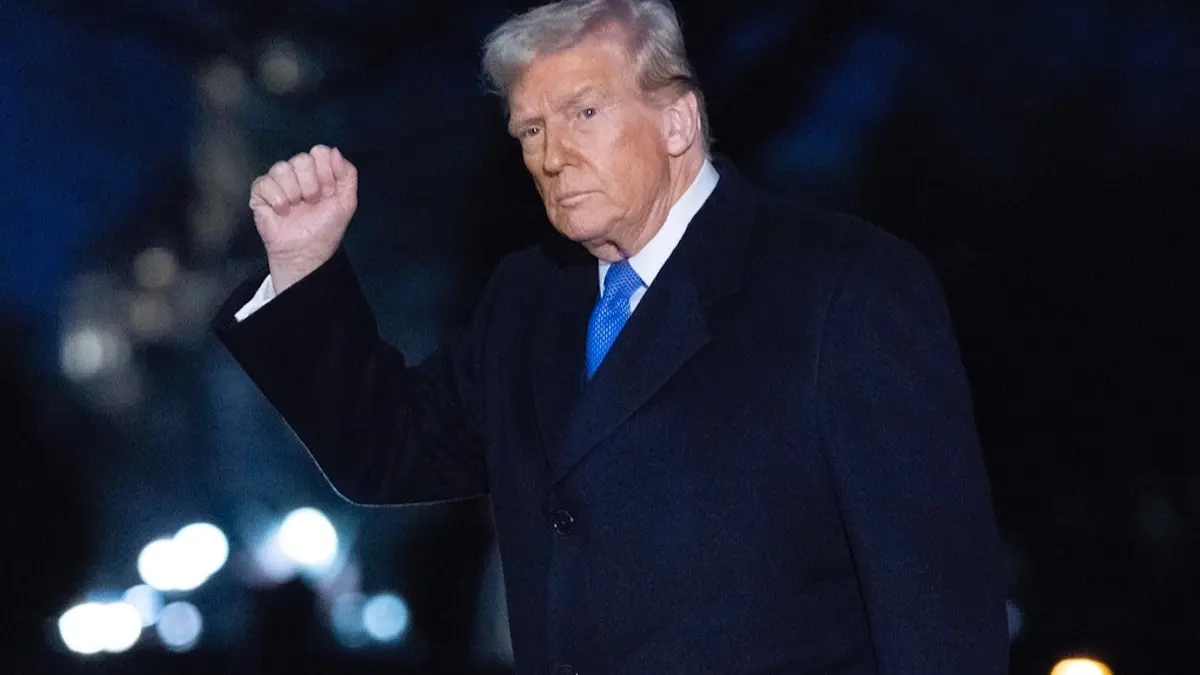Updated 15 March 2025 at 18:53 IST
Opinion/ Trump’s Attack on South Africa: A Political Move or Racial Fearmongering?
The Trump administration’s expulsion of South Africa’s ambassador and the broader targeting of the country is not about diplomacy or national security.
- Opinion News
- 4 min read

The Trump administration’s expulsion of South Africa’s ambassador and the broader targeting of the country is not about diplomacy or national security. Instead, it is a calculated attempt to pander to Trump’s far-right base, leveraging misinformation and racial grievances to paint South Africa as an enemy of America and white people.
The Manufactured White Farmer Crisis
One of Trump’s primary accusations against South Africa is the supposed persecution of white Afrikaner farmers. This claim, which he has amplified before, suggests that the South African government is engaged in a campaign to confiscate land from white farmers and allow their mass slaughter. The problem? There’s no factual basis for it. The South African government’s land reform policies, while controversial, are not about indiscriminately taking land from whites, and there is no “white genocide” occurring. Experts and crime analysts in South Africa have repeatedly debunked these claims, showing that crime affects all farmers, regardless of race, in a country struggling with high crime rates.
Yet, Trump and his allies—including his South African-born advisor Elon Musk—continue to push this narrative. Why? Because it fits a larger white nationalist agenda that portrays white populations as victims of government persecution, a theme that resonates deeply with Trump’s core supporters. His offer of refugee status to Afrikaner farmers is more about stoking racial tensions than actually helping people.
Targeting South Africa’s Foreign Policy
Beyond domestic policies, Trump’s decision to impose sanctions on South Africa and cut funding stems largely from its geopolitical stance. South Africa has been vocal in its criticism of Israel’s actions in Gaza, even taking the case to the International Court of Justice, accusing Israel of genocide. This position, rooted in the country’s long-standing solidarity with Palestine, has made it a target for Trump, who has gone as far as accusing South Africa of being a proxy for Hamas and Iran.
Advertisement
This is a striking oversimplification of South Africa’s diplomatic history. The African National Congress (ANC) has maintained ties with Palestine for decades, largely due to shared histories of struggle against oppression. South Africa’s support for Palestine is not new, and its accusations against Israel—whether one agrees with them or not—are not driven by some covert alliance with Hamas.
The Politics of Expelling an Ambassador
The abrupt removal of Ambassador Ebrahim Rasool follows the same pattern of Trump’s retaliatory diplomacy. Rasool, a well-known political figure, has been vocal in his criticisms of the MAGA movement, calling it a reaction to supremacist instincts. That was enough for Trump and his Secretary of State Marco Rubio to declare him persona non grata, citing an article from the conservative Breitbart website—a source with its own ideological biases.
Advertisement
Rubio’s justification for Rasool’s removal was vague, labeling him a “race-baiting politician” without addressing any substantive diplomatic concerns. Meanwhile, Breitbart’s coverage was written by Joel Pollak, a South African-born Trump supporter who has previously met with Afrikaner lobbying groups. Not coincidentally, Pollak is rumored to be Trump’s pick for U.S. ambassador to South Africa—a move that would cement Trump’s adversarial stance toward the country.
Weaponizing DEI and Climate Change
Trump’s disdain for South Africa has even extended to its leadership of the G20 this year. Rubio dismissed South Africa’s presidency and its focus on “solidarity, equality, and sustainability” as nothing more than “DEI and climate change,” signaling his contempt for global conversations on racial justice and environmental policies. His decision to skip G20 meetings in South Africa underscores the administration’s broader strategy of disengaging from multilateral diplomacy in favor of isolationist, grievance-driven politics.
The Bigger Picture
Trump’s fixation on South Africa is not about policy—it is about fueling the culture war. By framing South Africa as anti-white and anti-American, he reinforces the narratives that animate his base while distracting from real foreign policy challenges. The expulsion of Rasool, the sanctions, and the misinformation campaign around white farmers are all part of a broader playbook: stoking racial fears, undermining global institutions, and punishing governments that challenge his worldview.
While South Africa has its flaws—corruption, economic struggles, and internal political divisions—it is not the enemy Trump wants his supporters to believe it is. His attacks on the country serve as a stark reminder of how racial and political manipulation continues to define his approach to governance.
And if South Africa is the current target, other nations that do not align with Trump’s ideology should take note—this could be their future too.
Published By : Surabhi Shaurya
Published On: 15 March 2025 at 18:53 IST
